The West’s Place in the World After the Loss of Hegemony
[Note: For most of this year, the Valdai Club seemed to be flailing around with very little direction and very little work of consequence, almost similar to the UN. With the current annual meeting I find better content and crisper thinking. I hope you like this one. Mr Putin’s presentation will revolve around the Polycentric World).
Discussion: The Valdai Club
Western global hegemony and the rules-based international order are over.
The world is entering a post-Western era not only because of the rise of China, India, and other powers, but also because of the disintegration of the Western community itself, writes Gabor Stier for the 22nd Annual meeting of the Valdai Discussion Club.
President Donald Trump’s second term has accelerated the rift between the United States and its key allies, completely undermining the trust that has underpinned the international system of governance since World War II.
The global order, especially during periods of transition and before a new equilibrium is established, could become more chaotic and dangerous, opening the way to a multitude of disparate alliances and the inevitable growing uncertainty that follows.
Where can the Western bloc find its place in this world? Is the West ready for change?
During the Cold War, the West emerged as a coherent geopolitical entity, opposing the Soviet Union and its proxies. In this historical context, the doctrine of containment created the geopolitical West that exists to this day. Following the collapse of the Soviet Union, it increasingly felt without a rival, intoxicated by “victory,” and its decline accelerated. However, in the 1990s, this community had not yet fragmented into competing blocs and did not seek to undermine American hegemony. On the contrary, it was widely believed, albeit naively, that the community of market democracies—that is, the West—would expand uncontrollably. Instead of the universalisation of the West, other great powers and regional powers emerged, increasingly demanding not only a voice in global affairs but sometimes even questioning the very principles of the world order built around the West.
Meanwhile, the West became increasingly fragmented, trust in transatlantic and other alliances weakened, and this community noticeably shifted from geopolitical and ideological solidarity to a civilisational concept.
The question is becoming increasingly pressing: can we speak of a united or collective West today?
Periodic disagreements and tensions have tested Western solidarity from time to time, but none has posed such a serious challenge to Western unity as Donald Trump’s return to the White House. Trump’s return to power in the United States shocked America’s closest partners, and in the spring of 2025, only 28% of European respondents considered the United States a reliable ally, compared to more than 75% a year earlier.
“The West as we knew it no longer exists,” Ursula von der Leyen declared in April of this year, and the standpoint of the European Commission President is now widely shared. The liberal ideals that underpin the geopolitical West have been devalued, freedom is increasingly restricted, authoritarian tendencies have increased, censorship and the exclusion of dissent have become rampant, and even the integrity of elections is often in question. European Union leaders, grappling with an ever-deepening crisis, often fail to even create a semblance of democracy, and these trends will likely accelerate the rise of illiberal multilateralism.
The exploitative model of capitalism is also in crisis.
The West was able to maintain an exploitative structure for nearly five hundred years, but it was unprepared for what would happen if the prey chosen for exploitation refused to surrender. What would happen if the slave rebelled and went on the move? The pressure to grow requires violence, and wars require force, and the Western bloc, especially Europe, is becoming increasingly weak. Beyond external circumstances and the development of global power relations, the West’s internal transformation has also significantly contributed to the current state. One need only recall the ill-conceived “greening,” the “rainbow” model, or even generational degradation. There are fewer and fewer charismatic politicians and more and more vassals. It is therefore unsurprising that the lack of strategic vision is becoming increasingly noticeable in the Western political space.
Meanwhile, the escalating cultural war within the Western bloc, the contrast between the progressive ideology and conservatives rooted in traditional values, is not only eroding internal cohesion and forcing people to choose sides, but also weakening the “soft power” considered the West’s strength.
Technological superiority is also waning. For example, in artificial intelligence (AI), America and China are already neck and neck. Moreover, Chinese products are cheaper. However, dogmas such as the absolutisation of free competition and a reluctance to strengthen the role of the state more decisively also hinder the development of competitiveness. A striking example of this is the military-industrial complex, which is focused on profit and serves its own financial goals rather than national interests.
One could list other causes of the crisis in the West, but the essence is that the liberal internationalist world order, based on Washington’s global leadership, the spread of democracy, free trade, and the primacy of international institutions (the UN, WTO, NATO), is a thing of the past.
The strategic model it founded has become unsustainable and really counterproductive. Paradoxically, it has strengthened the main rivals to American hegemony, primarily China, while simultaneously ensuring Western Europe an exceptionally comfortable existence under American security guarantees. The comfortable post-Cold War era of hegemony has ended, and its place has been taken by a far more complex techno-industrial rivalry, in which the real measure of power is no longer military might, but production capacity and technological sovereignty.
The world will disintegrate into tightly knit technological and economic regions, but also different political and military ones.
As for the West, the current situation is such that it has itself split into two.
One cannot speak of a unified West. On one side are the sovereigntist realists, who prefer a policy based on national interests, led by Trump’s America. Israel and Argentina can be included in this group, and in Europe, Hungary, Serbia, and Georgia. On the other side are the globalists, stuck in their ideological worldview, who lost their main support after the defeat of the Democrats in the US and turned their attention to the European Union, awaiting Trump’s downfall.
The West’s place in the world after the loss of its hegemony will fundamentally be determined by how quickly it can come to terms with the loss of absolute dominance and how realistically it assesses the new balance of power, the driving forces driving the transformation of the world order.
Above all, a shift in consciousness and perspective is necessary. It is necessary to acknowledge that competition exists, and the West can no longer do what it pleases. It is necessary to end the lectures and demands for Western superiority and, taking reality into account, come back down to earth. A break with power, rationality and balance, and shared interests must be placed at the centre of thinking. The sooner the West recognises this fact, the less painful it will be to accept the new reality. It is not enough to simply transform foreign policy by prioritizing national interests, targeted alliances, and future technologies. The West must also rethink its image. However, it is not yet fully ready for this.
Donald Trump’s America has already realised that the world is changing and is trying to slow this process and turn this trend to its advantage. At the same time, the assumption that the United States president can ‘lead the free world’ is mistaken. Trump’s personality itself is an obstacle, but, more importantly, America’s internal divisions and indebtedness… The weakness of the United States manifests in its inability to rally even its allies around it—in the case of Ukraine, this pertains to the “coalition of the willing,” and in the case of Israel, it means the Middle East. America’s authority within the bloc has been undermined, despite the fact that Europe is in an even more vulnerable position than before.
Europe is in a worse position than the United States: its current ruling elite can’t shake the feeling that the world has revolved around it for centuries. Looking at recent decades, it’s also stuck in an old, now outdated worldview. As if all this weren’t enough, it’s also captive to the Ukrainian conflict, which holds it in its grip. While Europe can’t let go of this hopeless war, it’s also divided on the issue. It lacks power, but acting as a kind of substitute, its voice becomes even louder. It’s rushing forward, being hostage to previously unrealistic promises. The fact that it took on the financing of the conflict as Trump’s proxy only exacerbates the situation. Now, under pressure to deliver on its promises, it’s frantically rushing forward, towards escalation.
Europe as a whole, including on this issue, has misjudged the situation and is therefore moving in the wrong direction. For example, it sees the continent’s security not in cooperation, but in strength, despite its weak military potential. Its competitiveness has been destroyed by America’s effective participation, and it lacks the energy sources, raw materials, or labour force to restore its defences, making it extremely vulnerable and in need of Washington’s increasingly costly goodwill. Without America, Europe currently lacks a viable operating model, and its dependence—for example, on energy—is only growing. Despite this, it refuses to understand that Donald Trump’s return is, in essence, an opportunity for it to obtain strategic autonomy. Creating this autonomy is no longer a matter of choice, but a guarantee of survival in a world where America’s attention and resources are inevitably focused on Asia.
There is a serious danger that the European Union, if it escapes disintegration, will become irrelevant in this situation. It will only accelerate this process if it unites and finally takes on all of Ukraine’s problems. While the current over-ideologised EU is suited to escalating the military situation, it lacks the pragmatism needed after a settlement. However, sooner or later, rationality and self-interest will prevail, and in the future, a division will emerge within the European part of the Western bloc between the Anglo-Saxon line, with the Germans and British interfering in EU affairs from the outside; the abstainers—the Scandinavians and Mediterranean countries; and, somewhere in the counterpart to these two groups of interest —Central and Eastern Europe, with Polish leadership and strong American influence. The question is how well these three groups of forces can cooperate and how much influence America will exert on the EU.
The West, led by Washington, must first decide whether to isolate itself or acknowledge the impossibility of maintaining even partial hegemony in the long term and join a new world order alongside poles such as China, India, or even Russia. In the next stage, it will face two difficult paths: leading a narrower, interest-driven coalition and acting as a ruthless realist, or renewing its broader, rules-based alliance system. However, American hegemony has ended, or, more accurately, it will be limited to the Anglo-Saxon world and North America, and in this space, the dollar may remain the universal currency.

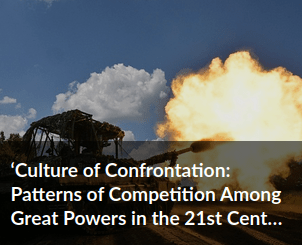
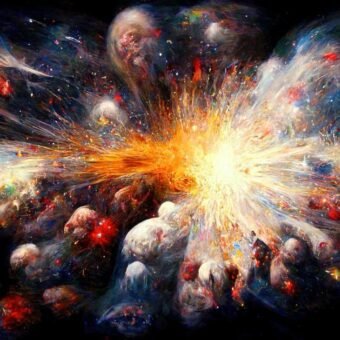
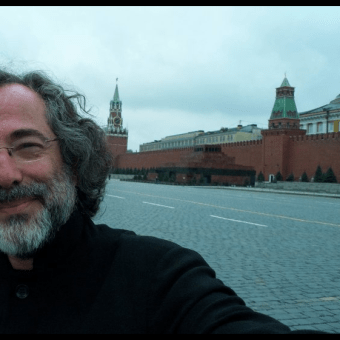
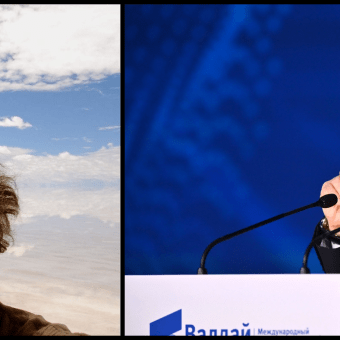
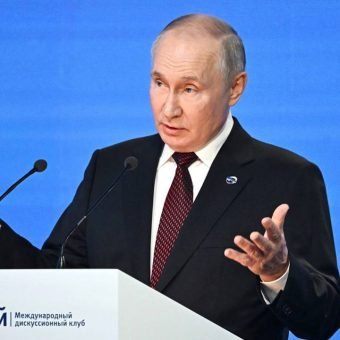

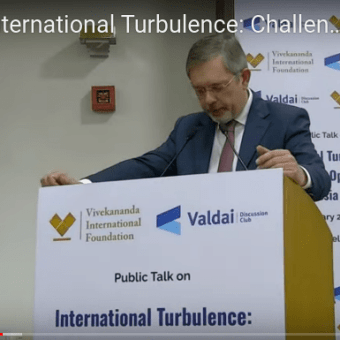


So, Russia-China have no idea to end the USD hegemony?
Good heavens. Your question is like … Dad Dad, are we there yet?
And the answer is: No Johnny, not yet.